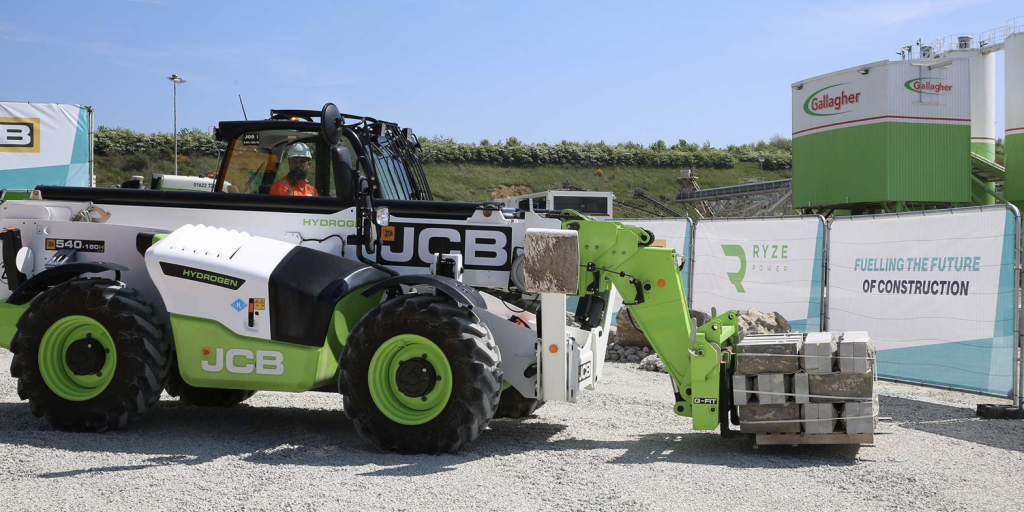Landmark Hydrogen-Powered Plant Trial Paves the Way for Green Construction Revolution
Key Ideas
- Gallagher Group, in collaboration with partners, conducted a successful trial of a hydrogen-powered JCB machine at Hermitage Quarry, showcasing its effectiveness in reducing emissions and potential for widespread adoption in construction.
- The trial aligns with the Lower Thames Crossing's goal of eliminating diesel use from construction sites by 2027, with the project aiming to reduce construction carbon by 70% and become the UK's greenest road project.
- The use of hydrogen at a large scale for heavy plant machinery is seen as a crucial step in decarbonizing the construction industry, reducing carbon footprints, accelerating the shift away from diesel, and fostering the growth of a hydrogen ecosystem in the Thames Estuary.
- The initiative not only supports the transition to cleaner construction methods but also contributes to economic growth, with the creation of a hydrogen ecosystem in the Thames Estuary projected to generate significant revenue and skilled job opportunities by 2035.
Gallagher Group, in partnership with the Lower Thames Crossing (LTC) project, JCB, and Ryze Power, conducted a groundbreaking hydrogen-powered plant trial at the Hermitage Quarry in Kent. The trial featured a hydrogen combustion-powered JCB machine, replacing a traditional diesel-powered one during masonry operations. Not only did the hydrogen-powered machine operate safely and effectively, but it also showcased zero tailpipe emissions and a potential CO2 saving of around 205kg per machine per week compared to a conventional diesel-powered machine.
This milestone trial supports LTC's ambitious target of eliminating diesel use from its construction sites by 2027 and contributes to reducing construction carbon by 70%, positioning the project as the UK's greenest road initiative. The adoption of hydrogen power at such a large scale for heavy plant machinery marks a significant advancement in decarbonizing the construction industry, providing evidence of hydrogen's potential to deliver low-carbon solutions.
Matt Palmer, executive director of Lower Thames Crossing, emphasized the project's commitment to leveraging clean low-carbon hydrogen power to power heavy construction machinery, facilitating a substantial reduction in carbon footprint and promoting the establishment of a hydrogen ecosystem in the Thames Estuary. The involvement of Gallagher Group in the trial not only supports the shift towards cleaner construction practices but also contributes to the economic development of the Thames Estuary, with the hydrogen ecosystem initiative projected to create a substantial economic impact and numerous skilled job opportunities by 2035.
Topics
Training
Environmental Impact
Innovation
Sustainability
Green Technology
Net Zero
Construction
Economic Growth
Emissions Reduction
Latest News
